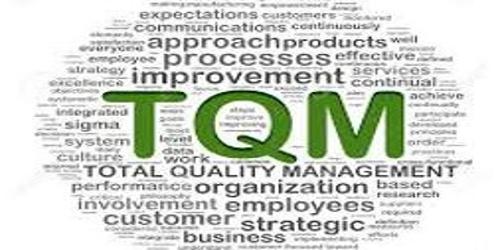Total Quality Management (TQM) is a comprehensive and structured approach to organizational management that seeks to improve the quality of products and services through ongoing refinements in response to continuous feedback. It describes a management approach to long-term success through customer satisfaction. It aims to hold all parties involved in the production process accountable for the overall quality of the final product or service.
TQM requirements may be defined separately for a particular organization or may be in adherence to established standards, such as the International Organization for Standardization’s ISO 9000scries. TQM can be applied to any type of organization; it originated in the manufacturing sector and has since been adapted for use in almost every type of organization imaginable, including schools, highway maintenance, hotel management, and churches. As a current focus of e-business, TQM is based on quality management from the customer’s point of view. It is a combination of quality and management tools aimed at increasing business and reducing losses due to wasteful practices.
Support Activities
The primary value chain activities described above are facilitated by support activities. Porter identified four generic categories of support activities, the details of which are industry specific.
- Procurement – the function of purchasing the raw materials and other inputs used in the value-creating activities.
- Technology Development – includes research and development, process automation, and other technology development used to support value chain activities.
- Human Resource Management – the activities associated with recruiting, development, and compensation of employees.
- Firm Infrastructure – includes activities such as finance, legal, quality management, etc.















